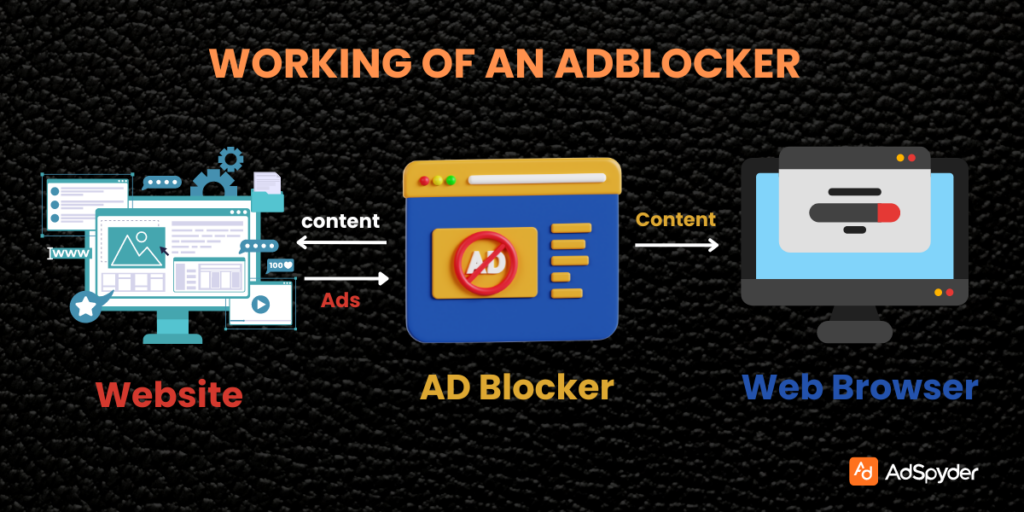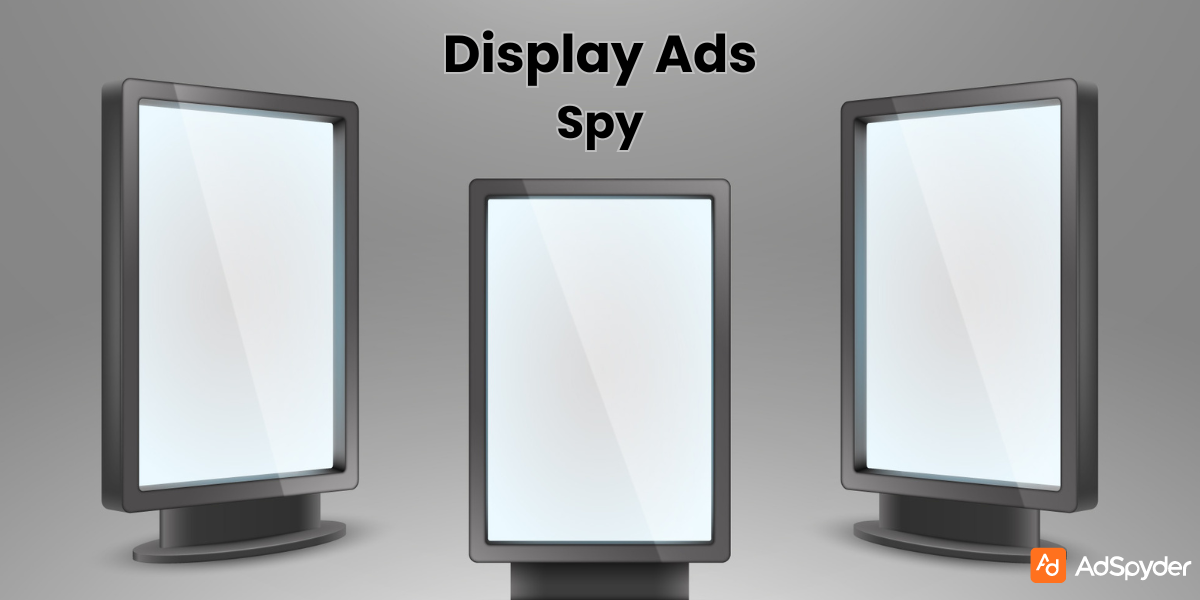In the contemporary digital landscape, online advertising stands as a cornerstone for promoting products and services, including the flourishing realm of online betting platforms. However, the formidable rise of ad blocking has cast a significant shadow over advertisers, particularly impacting the online gambling industry. Ad blocking, the software or browser extensions that allow users to thwart display advertisements, have engendered a landscape riddled with revenue losses and reduced ad visibility. This comprehensive article embarks on a journey to illuminate the ubiquity of ad blocking in the online gambling sphere, their far-reaching implications for advertisers, and the strategic blueprint to surmount these challenges, ensuring the seamless delivery of ads and the preservation of user engagement.
The Prevalence of Ad Blocking in the Online Gambling Industry
The ascension of ad blockers to prominence is undeniable, casting its shadow over a multitude of industries, including online gambling. According to PageFair, the global ad blocking market burgeoned by a staggering 30% in 2021, and its estimated worth currently stands at a colossal $13.4 billion. This meteoric growth serves as a testament to the growing disquietude among users regarding intrusive and irrelevant ads.
Reasons for Users Installing Ad Blockers and Their Perceptions of Ads
Users embrace ad blockers for an array of reasons, ranging from a yearning for an enhanced online experience and swifter page loading times to heightened privacy concerns. The refrain from conventional display ads as intrusive is a refrain echoed by many, giving birth to ad fatigue and perpetuating a bleak perception of online advertisements. Advertisements that fail to align with user interests or cater to their needs often suffer dismissal or are simply overlooked, paving the path to diminishing ad efficacy.
Effects of Ad Blocking on Gambling Advertisers

The omnipresence of ad blockers effectively hinders ads from reaching their designated audience, culminating in a hemorrhage of ad revenue for gambling operators. This acutely affects the return on investment (ROI) of advertising endeavors and may even dissuade operators from plunging into the realm of digital advertising. The tentacles of ad blockers also extend to the diminishment of ad visibility, thus constraining the exposure of gambling ads and obstructing the diligent cultivation of brand awareness.
In the face of ad blockers and their impact on online gambling advertising, understanding alternative strategies like influencer marketing is crucial. To learn more about how influencer marketing is reshaping the industry, visit our article on the power of Influencer Marketing in Online Betting.
Impact on User Reach and Brand Exposure for Betting Sites
Ad blockers serve as the bane that constricts the reach of online betting platforms to their potential customer base. This curtails their ability to lure new users and expand their clientele. For betting sites striving to cast a wider net and amplify brand exposure, the omnipresence of ad blocking serves as a substantial hurdle.
Anti-Ad Blocker Techniques and Workarounds
Advertisers wield a formidable arsenal of anti-ad blocker techniques to circumvent the defenses of ad blockers and ensure their ads successfully penetrate the targeted audience. These techniques encompass the ability to detect the presence of ad blockers and, in response, display alternative ad formats or messages that nudge users towards disabling their ad blockers for a superior user experience. It is quintessential for advertisers to strike a harmonious balance between user experience and advertising, thereby preserving trust and fostering engagement.
Implementing Acceptable Ad Standards to Outsmart Blockers
The unwavering adherence to acceptable ad standards, such as those promulgated by the Coalition for Better Ads, serves as an effective strategy to navigate around ad blockers that align with these very standards. Crafting ads that harmonize with industry guidelines and champion user experience augments the odds of their successful delivery to users.
Creating Non-Intrusive and Relevant Ad Experiences
To deter users from deploying ad blockers and engender positive interactions with advertisements, gambling advertisers should focus their energies on curating non-intrusive and relevant ad experiences. Personalization, guided by user preferences and behavior, serves as the compass that steers ad relevance towards the user, effectively countering the perceived intrusiveness of ads.
Addressing Ad Fatigue and Elevating Ad Relevance
Repetitive exposure to the same ad sets the stage for ad fatigue and propels users towards the realm of ad blockers. By diversifying ad creatives and periodically refreshing ad content, gambling operators can maintain ad engagement at its zenith and thwart the weariness induced by repetitive ads.
Harnessing Native Ad Formats to Outmaneuver Ad Blockers
Native advertising, with its innate ability to seamlessly assimilate with the platform’s content, presents itself as less susceptible to the countermeasures of ad blockers. By crafting ads that seamlessly merge with the visual aesthetics of the site or app, advertisers can efficaciously deliver promotional content without triggering the defensive mechanisms of ad blocking.
Collaborating with Publishers for Sponsored Content in Betting
A collaborative effort with publishers to spawn sponsored content stands as a judicious means to deploy ads that bestow value upon users while eluding ad blockers. Sponsored content seamlessly integrates with the site’s content, rendering information or entertainment that gracefully aligns with user interests.
Articulating the Benefits of Advertising to Users
User education serves as the fulcrum for a comprehensive strategy that enlightens users about the role of ads in buttressing free content and online platforms. Transparent discourse concerning the value of ads in underpinning free access to content engenders a sense of understanding and appreciation for non-intrusive advertisements. This, in turn, steers users towards supporting advertising endeavors.
Encouraging Users to Champion Free Content through Ads
A significant portion of users remains oblivious to the fiscal implications of ad blocking on online platforms and content creators. Encouraging users to bolster free content by permitting the display of non-intrusive ads can inject vitality into the symbiotic relationship between user experience and the sustainability of online services.
Future of Ad Blocking in the Online Gambling Industry

As the landscape of ad blocking technology unfurls, the perennial debate between user experience and advertising revenue will persist. Advertisers within the online gambling sector must remain agile, perpetually adapting their strategies to proffer relevant and engaging content while respecting the proclivities of users for ad-free experiences. Striking a harmonious balance between the need for effective advertising and user-centric approaches will be the lighthouse guiding the online gambling industry amidst the burgeoning presence of ad blockers.
Anticipating the Future of Ad Blocking and Its Ramifications for Gambling Ads
In consonance with the relentless evolution of ad blocking technology, its imprint on the online gambling domain will continue to metamorphose. Advertisers will need to remain ever watchful and adapt their strategies in synchrony with emerging blocking techniques. The user demand for heightened control over the types of ads they encounter may lead to the proliferation of personalized ad blocking options. This trajectory could potentially accentuate the reduction in ad visibility for gambling ads if users opt to block them comprehensively.
Furthermore, as the embrace of ad blockers amplifies, the financial losses for the online gambling sector may continue to mount. To sustain competitiveness, betting platforms will be compelled to explore alternative streams of revenue and innovative avenues to engage users, circumventing the reliance on conventional display advertising.
Innovations in Ad-Blocking Detection and Deterrence Techniques
In retort to the challenges posed by ad blockers, the advertising industry is immersed in a
quest for innovative solutions capable of detecting and deterring ad-blocking mechanisms. Advertisers are allocating resources towards the procurement of ad-blocking detection tools engineered to identify instances where users deploy ad blockers and pivot ad delivery strategies accordingly. By harnessing cutting-edge technology, advertisers can proffer ads through alternative conduits, such as server-side ad insertion, thereby sidestepping ad-blocking software.
Furthermore, publishers and advertisers are increasingly gravitating towards secure and transparent ad formats that align seamlessly with acceptable ad standards. These formats boast the innate capacity to elude the grasp of ad-blocking software and ensure that ads are seamlessly beamed to their intended audience. By harnessing these innovations, gambling advertisers can deftly mitigate the influence of ad blockers, ensuring the perpetuation of visibility for their campaigns.
You Can Also Read: Augmented Reality (AR) and Virtual Reality (VR) in the Gambling Sector
Conclusion
The confrontation of ad blockers in the realm of online gambling advertising necessitates the adoption of a multidimensional approach that places user experience and relevance at its epicenter. Through the shrewd implementation of anti-ad blocker techniques, the unwavering adherence to acceptable ad standards, and the cultivation of constructive user-ad interactions, gambling advertisers can negotiate the labyrinthine challenges posed by ad blocking. As the online gambling industry continues its inexorable evolution, an intimate comprehension of user preferences coupled with the utilization of ad formats that are in harmonious synergy with user predilections will remain pivotal to sustaining a triumphant advertising strategy, irrespective of the ubiquitous presence of ad blockers.
FAQs
Ad blocking refers to the use of software or browser extensions designed to block or filter out display advertisements while users browse the internet. It has gained prominence due to users seeking a better online experience, faster page loading times, and increased privacy. Users are increasingly frustrated with intrusive and irrelevant ads, which has led to the widespread adoption of ad blockers.
Ad blockers in the online gambling industry pose significant challenges. They lead to a loss of ad revenue and reduce the visibility of gambling ads, impacting the return on investment (ROI) of advertising campaigns. Ad blockers also limit the reach of online betting platforms to potential customers, making it harder to attract new users and expand their customer base.
Certainly. According to PageFair, the global ad blocking market grew by 30% in 2021 and is estimated to be worth $13.4 billion. This growth reflects the increasing concern among users regarding intrusive and irrelevant ads, which has profound implications for the online advertising industry.
Advertisers can employ anti-ad blocker techniques, create non-intrusive and relevant ad experiences, and diversify ad creatives to prevent ad fatigue. They can also consider native advertising and sponsored content, as these formats are less susceptible to ad blockers.
Yes, adhering to acceptable ad standards, such as those outlined by the Coalition for Better Ads, can help ads bypass ad blockers that follow these standards. Creating ads that comply with industry guidelines and prioritize user experience increases the chances of successful ad delivery.
User education is crucial in fostering understanding and appreciation for non-intrusive advertisements. Communicating the benefits of ads in supporting free content and online platforms can encourage users to support advertising efforts. Transparency about the value of ads in sustaining free access to content is key.
As ad blocking technology continues to evolve, it is likely that users will demand more control over the types of ads they see, leading to personalized ad blocking options. This trend could reduce ad visibility for gambling ads if users choose to block them entirely. To remain competitive, online betting platforms will need to explore alternative revenue streams and innovative ways to engage users beyond traditional display advertising.



